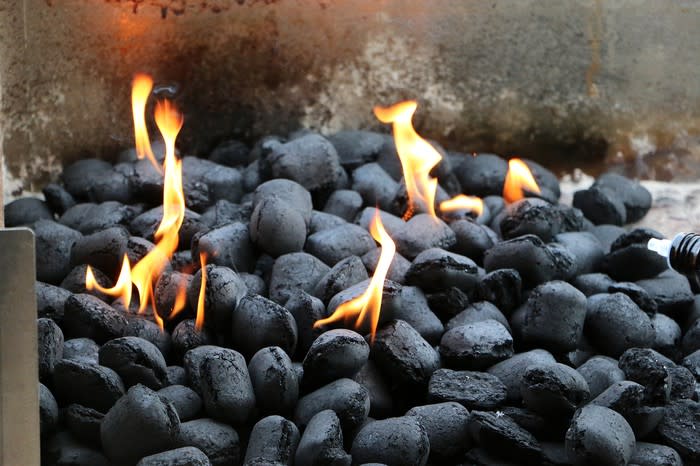Clorox Earnings Dragged Down by Trash and Charcoal
Last, week, Clorox (NYSE: CLX) reported its fiscal fourth-quarter and full-year results late last week. The market appeared to have a neutral reaction, with the stock declining on what was a down day for the overall market due to trade war news.
Clorox actually reported a 4% revenue decrease in the quarter, which missed expectations, but its $1.88 in earnings per share showed a 13% increase, beating expectations by $0.04. But don't get too excited; the EPS beat was entirely due to a tax rate of just 17.4%, vs. 29% in the year-ago quarter, due to the lag in the U.S. tax reform law. Operating income actually fell by 4.6%. The company expects its tax rate for fiscal 2020 to be in the intermediate range, between 22% and 23%.
In short, it was a somewhat disappointing report, especially given the strength of certain other household branded goods companies. So what was the problem?

Image source: Getty Images.
Trash bags and charcoal were the culprits
The weakness seems to be almost entirely due to the household segment, which includes Glad trash bags and Kingsford charcoal. These two big brands were the main culprits behind that segment's 11% sales and 24% operating earnings decline.
Clorox had instituted price increases across a wide array of its products over the past year, as costs of goods and freight costs increased. This had the impact of lowering sales volume but increasing gross margin to 45.1% vs. 44% a year ago.
While many of the company's price increases were successfully passed on, it appears trash bags and charcoal didn't have as easy a time. Competitors didn't follow suit right away, leading to a huge gap in pricing, but they have followed with price increases more recently -- and yet, those two segments are still struggling. That makes the losses potentially more worrisome.
Management is sticking to its guns
CEO Benno Dorer defended the price increases, and said that only the weakness in Glad trash bags surprised management. The company vowed to invest in more trade promotions (coupons, end caps, prime shelf space) to help the situation. In general, management defended leading on price increases, and preached patience to investors, to allow Clorox's trade promotions and competitors' follow-on price increases to take effect.
On the conference call with analysts, Donner said:
I would say, excluding Glad, [this report was] in line with our expectations. Clearly, the bumpiness that we had anticipated, which leads generally to lower merchandising and distribution losses, [is] there. We're seeing them. We're addressing them. But they're temporary ... generally, the good news is that pricing has been accepted ... as part of the industry, where we perhaps [were] somewhat disproportionately affected by distribution losses, given that we went out with price increases ... That's quite possible, but that doesn't change our conclusion that pricing overall was necessary and good.
How differentiated can trash and charcoal be?
Management's comments aside, the underperformance in these categories is still a bit troublesome, given that other Clorox products, such as wipes, were able to pass on price increases without much negative effect. Additionally, competitor Procter & Gamble (NYSE: PG) just trounced its earnings expectations, posting organic growth of 7%, so it's not as if growth is impossible for consumer packaged-goods companies that pass on higher prices to consumers.
There could potentially be a more dangerous problem, however: Trash bags and charcoal may not have the pricing power of other branded goods like shampoo and deodorant that people put on their bodies. After all, eventually all trash bags get thrown away, and charcoal gets burned, so it may be harder to be the "high-end" brand in trash bags or charcoal and charge a premium -- especially when private-label alternatives are fast improving.
The windshield is murky
Clorox gave full-year forward guidance of flat to 2% sales growth and flat to 3% EPS growth. The stock trades at about 25 times earnings and 23 times forward earnings; that really only makes sense if you think interest rates will remain this low for a while, as growth seems hard to come by for the company.
Clorox remains a good operator and a well-run company, but it's hard to get excited about its tepid guidance, especially when others in the branded home goods category are outperforming.
Billy Duberstein has no position in any of the stocks mentioned. His clients may own shares of the companies mentioned. The Motley Fool is short shares of Clorox and Procter & Gamble. The Motley Fool has a disclosure policy.
This article was originally published on Fool.com

 Yahoo Finance
Yahoo Finance 